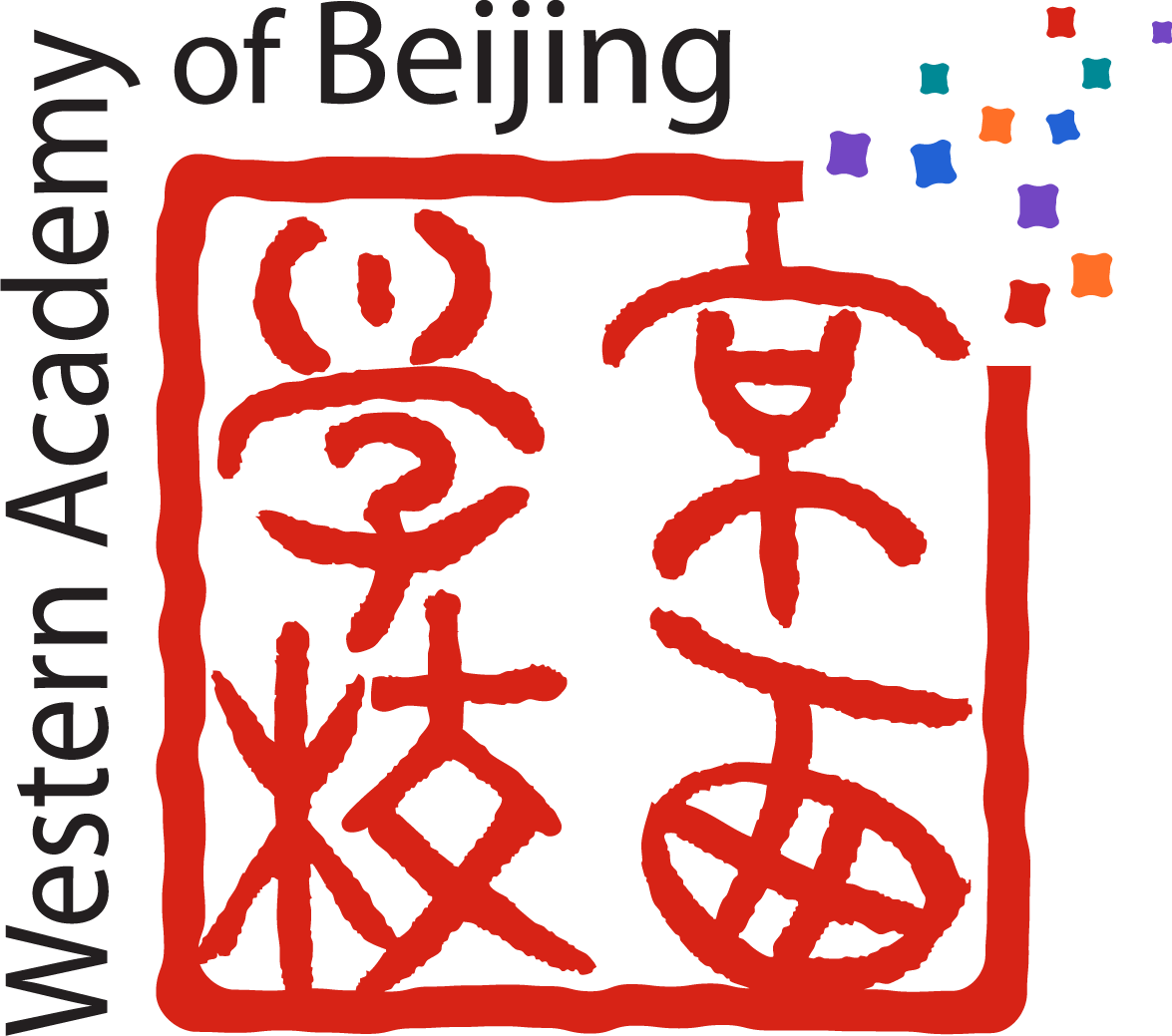Adapting to WAB and Beijing
Orientation
WAB believes that orientation begins at recruitment, and the school aims to provide you with the information you need at the different stages of your transition into WAB. Apart from the continual support given by HR and Finance staff, WAB has also put together a “Buddy System” to help facilitate a smoother transition for you.
Buddy System
All new teachers are assigned a member of our staff as their personal Buddy. Your Buddy’s primary goal is to provide a link to facilitate good pre-departure preparation. You will be provided with the contact details of your Buddy, and he/she will make initial contact with you by phone or email, at which time you can determine the best means for on-going communication. Your Buddy is there to:
- Provide a personal contact
- Respond to questions and/or concerns especially relating to “personal needs”
- Direct you to the “right person” or find out the information for you if they cannot answer your question
- Support you during the transition process
Your Buddy is often separate from your professional buddy who may be your Grade Level Leader, Head of Department or Department Leader who will support you in the professional/school orientation once at school. We encourage you to communicate frequently with your Buddy – and to remember that no question is too small! A typical matter that the Buddy has helped with, has been finding an ayi (domestic helper) for a family with children. Sometimes your buddy can also point you to the right direction regarding different housing options, but you will have plenty of opportunities to house hunt when you arrive.
New Employee Orientation Program
WAB organizes a comprehensive one-week Orientation Program that varies from year to year but will include information and activities related to:
- Living in Beijing – shopping for groceries, electronics, furniture, etc.
- Working at WAB – school tours, classroom setup, information sessions, etc.
- Chinese Language – survival Chinese lessons
- Social activities – food, drinks and sightseeing
- Transition – dealing with culture shock and the move
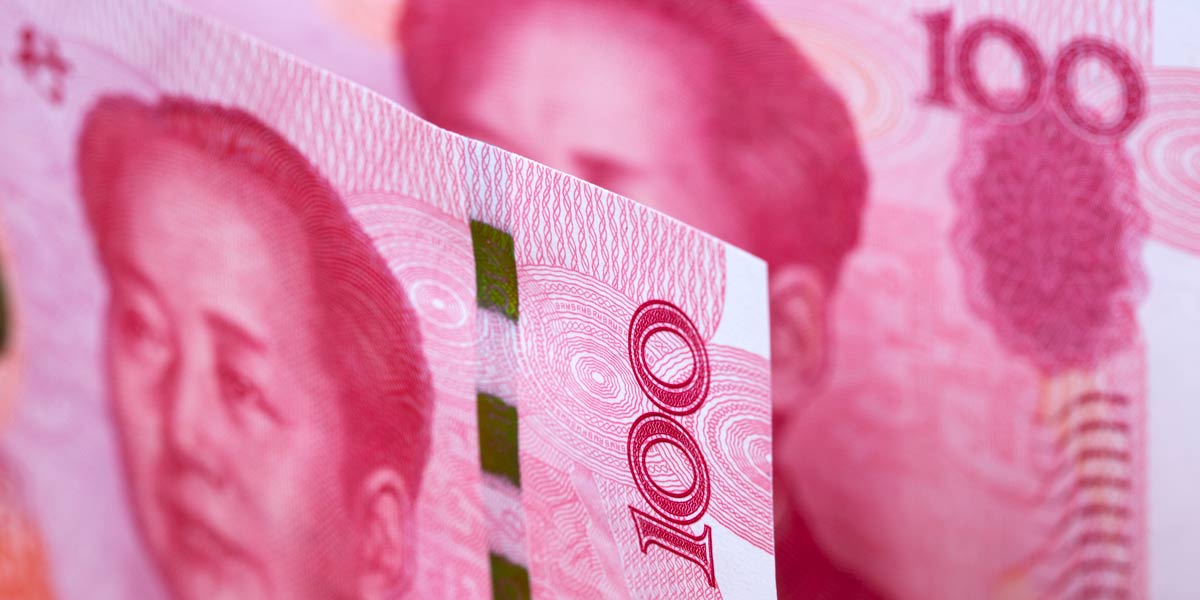
Banking and Finance
The following are some key points on banking and finance. A financial Information session with more details will be presented to you during your first week at WAB.
Money
China has rapidly changed from a cash society to one which credit cards, WeChat Wallet, and Alipay, are now widely accepted in major cities and even in small restaurants and shops in rural areas. You likely not need to prepare to pay in cash, credit cards, or debit cards in most situations. The currency is known as Renminbi (RMB). The basic unit of RMB is the Yuan, commonly called Kuai (pronounced ‘kwai’). RMB bills are issued in denominations of one, five, ten, twenty, fifty and one hundred.
Payment and Salary
Salary is usually paid at the end of each month, with the exact schedule published in August. The school pays salary in RMB, either to your Chinese bank account or directly to your overseas bank account converted to the currency of your choice. Direct salary overseas transfer will be processed in the following month when your work visa is ready. In addition, RMB can be converted into most major currencies and transferred out of China after completing the necessary paperwork with the bank in the bank branch.
Planning your Personal Finances
We recommend that you plan your personal finances as soon as you have decided to relocate to Beijing. In your planning, you should consider personal financial responsibilities (e.g., mortgage, credit bills in your home country or previous locations) as well as living expenses in Beijing, which can range from RMB8,000 – RMB15,000 for things like meals, groceries, transportation, utilities, etc.
August salary will be paid around August 25th. Please take enough money for your August living expenses in Beijing. You can make the exchange either at the airport or in the bank.
CITIC Bank Account
During the first week you come to WAB, A Chinese currency bank account will be opened for you with a local bank known as CITIC Bank. You will be issued a debit card for this account, providing access to cash at bank machines with UnionPay logos. These bank machines are available everywhere in China, most South-East Asia, Australia, US and Europe. UnionPay is the world’s fastest growing payment transfer/inter banking system.


WeChat Wallet and Alipay
WeChat Wallet and Alipay have become the two most important methods of payment in China (more so than your CITIC debit card). You still need your CITIC debit card to link to these payment methods, but you hardly need to withdraw cash, use the card, or even swipe your debit card once you have WeChat Wallet and Alipay set up.
You can use them to order and pay online from TaoBao, JD, etc., order and pay for taxis, order and pay for movies and concert tickets, and pay in supermarkets and stores. You can even pay in the wet markets – what a benefit for not needing to touch cash at all!
We will send instruction to you how to setup Alipay account with your current credit card. Wechat wallet will be setup once you receive your CITIC debit card.



Cash Advances
If necessary, a cash advance of up to one month’s salary can be requested from the Finance Office. The salary advance will be deducted from your next month’s salary.
Relocation and Accommodation Set-Up Allowance
WAB provides a one-time relocation allowance of gross RMB 4,000 per employee and a one-time accommodation set-up allowance of gross RMB 6,000 per family. This allowance applies if you relocate from overseas or from another city within China to Beijing. It is a taxable allowance and will be paid in August salary after deducting tax. The tax rate is the same as your salary tax rate.
Reimbursement
To claim expenses incurred within China, only official tax receipts (known as Fapiao) are accepted under the name of WAB in Chinese. If you are in doubt, please check with the Finance Office.
When applying for air tickets and other reimbursements from the Finance Office, you should fill out the reimbursement forms in WAB Employee Connect online (WAB office automation system) and send the required original official receipts and supporting documentation to the HR department.
Reimbursement will be processed within 7 working days after finance receives all approved documents. Reimbursements will be paid in RMB, and will be credited directly into your local bank account (separate from salary payment). No other currency will be available for reimbursement.
Receipt from ATM Machines and Fake RMB Bills
Every RMB bill has its unique number in the lower left corner. When you withdraw cash from ATM machine in HS, please print receipt of your withdraw with each bill numbers printed, or print the receipt from ATM machine in HS with transaction reference number, bank can get all the bill numbers with this transaction using this reference number.
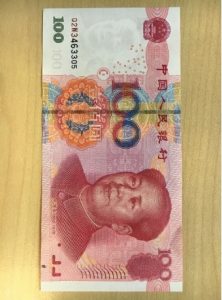
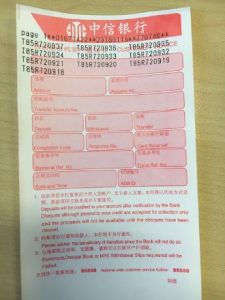
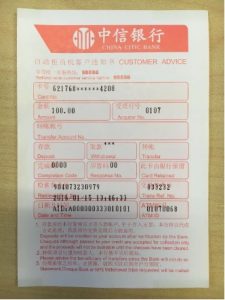
Credit Cards
Most stores, hotels, and larger restaurants accept international credit cards (such as Visa, MasterCard, or AMEX), while smaller shops and eateries accept only WeChat, cash, or local debit cards. In some situations, you will be asked to pay an additional commission if using a card instead of cash. The commission is usually 3-4% for foreign credit cards.

Transportation
WAB Buses
During NEOW, WAB will arrange a shuttle bus for new staff members staying at the accommodation arranged by the School. Thereafter, commuting to and from WAB will be the responsibility of the staff member.
Student Buses
There are approximately 50 school buses running daily between WAB and many residential complexes in Beijing. Priority is given to students. Staff members are welcome to ride the 4:30pm and 5:45pm buses as long as there are enough seats. As long as there is one student on the bus for it to run, it will stop at all WAB designated stops, regardless if there is a student at that stop. The buses will not make special stops for staff. All bus up-to-date can be found in Bus Services in the WAB Parent Portal.
Didi Taxi
By downloading the Didi taxi App, you can easily and quickly summon a variety of vehicles from your mobile phone, including regular taxis, private car drivers, or ride-sharing services. Prices are open and transparent. The service software can provide real-time monitoring of road condition information along the way. Didi Taxi have platform safety monitoring and recording services. You can select the corresponding car model, quote, and choose your preferred travel method before placing an order.
Subway and Public Buses
The subway is a good option for limited travel in Beijing, and there are subway lines reaching all major business and tourist areas within Beijing. Line14 and 15 have stations close to WAB, perhaps a 10-15 minute walk, or a short bike/taxi ride, and they provide a good opportunity to connect to the wider network of routes all over Beijing. Taking the subway is one of the fastest and most inexpensive ways to get around Beijing – a single trip ticket costs up from RMB3 (approximately US$0.40) depending on the distance travelled. Chinese is spoken on the platforms and English announcements are made on arrival at the stations. The crowd can sometimes be overwhelming (or fun!). Public buses are even cheaper but could take twice as much time as a taxi to reach your destination. Only Chinese is spoken on the buses.
Bicycles
Biking used to be the most common form of transportation in China. Most public roads still have bicycle lanes, but cars overtook the number of cyclists many years ago. Cycling is still a good option to get around fast in the city center or short distances in the suburbs; it is fun, cheap, and a good form of exercise. Many students and teachers ride to school daily.
The newest adaptation of IoT (Internet of Things) is the vast array of rental bikes available for short rides. Foreigners can register for these bikes. A deposit is required, and you can top up your bike credit from your WeChat Wallet or Alipay. Then scan the QR code or request the bike lock code, and off you go! The advantage of these communal bikes is that you can pick them up from wherever and park them in the designated parking areas. So, no specific parking lots are needed for these rentals!
Obtaining a Driver’s License
If you wish to drive in Beijing, you must have a Chinese driver’s license. It is illegal to drive with a foreign driver’s license. To apply for a local driver’s license, you must already hold a foreign or international driver’s license, and you will be required to take an assessment with multiplechoice questions. The fee is approximately RMB800 for each testing. An English study guide and a smart phone application can help you to prepare, should you decide to take the test. Although the assessment and the guidebook are in English, it is still sometimes hard to comprehend the translation from Chinese. Most teachers take an average of two assessments before passing it.
Zero tolerance has been implemented to drinking and driving, and we highly advise you to refrain from drinking any alcohol before driving. Breathalyzer tests are common on Friday and Saturday nights on busy roads and near road toll stations.
Beijing Traffic
Traffic jams are common in Beijing and should be expected. Staff members must plan their commuting time carefully. Traffic is especially severe on rainy and snowy days.
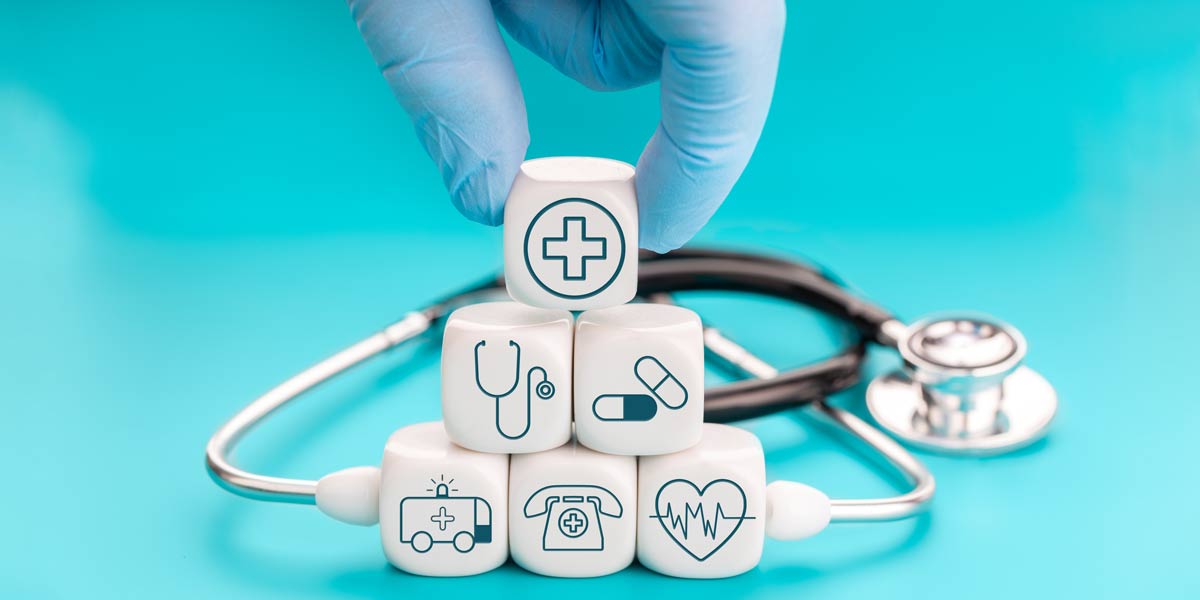
Health
Health Insurance - CIGNA
WAB provides a comprehensive world wide health insurance policy for staff members and their contractual dependents through CIGNA, a local insurance provider with an office in Beijing providing customer service and claims administration at WAB.
When will I (and my family) be enrolled into CIGNA?
New staff members will be enrolled effective August 1, irrespective of your arrival date. You need to ensure you (and your family) are covered with your personal health insurance before August 1.
What does CIGNA cover?
CIGNA provides coverage with an annual deductible of 3,500 RMB. The deductible is at your personal expense. CIGNA will cover your treatment expenses after the deductible amount has been met. A 20% co-pay applies at High Cost Provide (HCP), and a 20% geographic co-pay applies in the US. Local Chinese hospitals have enjoyed beneficial treatment and had the annual deductible waived since the 2011-12 policy year.
Many of the benefits require pre-authorization and are subject to the deductible or limits. The program is reviewed annually and benefits may be adjusted. More information will be provided to you after arrival.
Air Quality
WAB has a world class air filtration system in all school buildings. Outside, Beijing is constantly working to reduce emissions and improve air-quality country-wide. In spring, the pollen count can be significant and occasional sandstorms lasting from a few hours to a day usually occur in March or April. If you or your family members are susceptible to respiratory related illnesses or pollen allergy, please consult your doctor before coming to Beijing, and/or may need to carry with your medications recommended by your doctor.
Eye Health
If you wear glasses or contact lenses, it is a good idea to bring a spare pair and your prescription. Optical services, glasses and disposable soft contact lenses are easily available and affordable. Corrective laser treatment (commonly known as LASIK/LASEK) is popular in Beijing, and several of WAB staff members have sought this treatment in Beijing and found it a positive experience. Visit If you wear glasses or contact lenses, it is a good idea to bring a spare pair and your prescription. Optical services, glasses and disposable soft contact lenses are easily available and affordable. Corrective laser treatment (commonly known as LASIK/LASEK) is popular in Beijing, and several of WAB staff members have sought this treatment in Beijing and found it a positive experience. www.intecheye.com to find out more. Optical treatment is not covered by the school’s health insurance, but the annual vision check-up is part of the School’s health insurance plan under ‘Wellness’. to find out more.
Optical treatment is not covered by the school’s health insurance, but the annual vision check-up is part of the School’s health insurance plan under ‘Wellness’.
Immunizations
Medical opinion varies as to which immunizations are advisable when living in China. Check with your doctor for all immunizations required, and carry a complete set of records of all immunizations you have had with the dates. Vaccinations against tetanus, Hepatitis A and B, and Covid-19 are usually recommended. Discuss this with your doctor. If you have a child who will be enrolled at WAB, the child is required to submit a recent medical examination report including a PPD-test and proof of the following immunizations – Tetanus, Polio, MMR and Hepatitis B. The school also recommends the child be immunized against Hepatitis A, Japanese Encephalitis and Rabies, but these are optional. For more information, visit BJU website: www.ufh.com or www.internationalsos.com.
Medicine/Drugs
If you need prescription medicine, you should always know its generic name and bring a sufficient supply with you. China has a developing pharmaceutical industry, and most likely your prescription is available here, although it may have a different brand name.
All prescription drugs and medical records should be hand-carried during transit to Beijing. Putting them in freight shipments or sending via courier (such as DHL or FedEx) may cause them to be subjected to full tax/duty or to attract unnecessary attention of Chinese customs. Most prescription drugs are covered by the school’s health insurance with a co-insurance applied. Drugs prescribed by doctors in the medical centers are mostly dispensed through their own pharmacies.
Over-the-counter (OTC) drugs such as Ibuprofein, Panadol, Tylenol, lozenges, cough mixtures and HEALTH 27 ACCOMODATION vitamins are not covered by health insurance and can be purchased from local drugs stores. Traditional Chinese Medicine (TCM) has a growing popularity amongst the international community, and includes treatments such as acupuncture and massage.
Drinking Water
Beijing’s tap water is hard and contains lots of minerals, which is not suitable for direct drinking and should be boiled if it is used for cooking. Tap water is commonly used in most local restaurants’ cooking. Most staff members prefer to buy bottled drinking water, which is readily available at supermarkets and cost about RMB20 (US$3.20) for a 20-litre bottle. Some homes have installed water filters for drinking.
Baby Care
Familiar brands for disposable diapers like Pampers, Huggies and Fitti are easily available in supermarkets. Johnson & Johnson markets a wide selection of baby care products, including shampoo, body wash and skin lotion. Beijing also has baby food and milk formula produced by well-known manufacturers like Heinz, Nestle, Gerber, Dumex, Abbott Lab, Mead Johnson and Frisocare. Most of these products are made or packed in China, and are available online at http://www. leyou.com/. Imported baby products are available at a higher price. If you are not yet comfortable with locally made or packed products, you may wish to bring a good supply of food or formula and take your time to find something suitable for your baby.
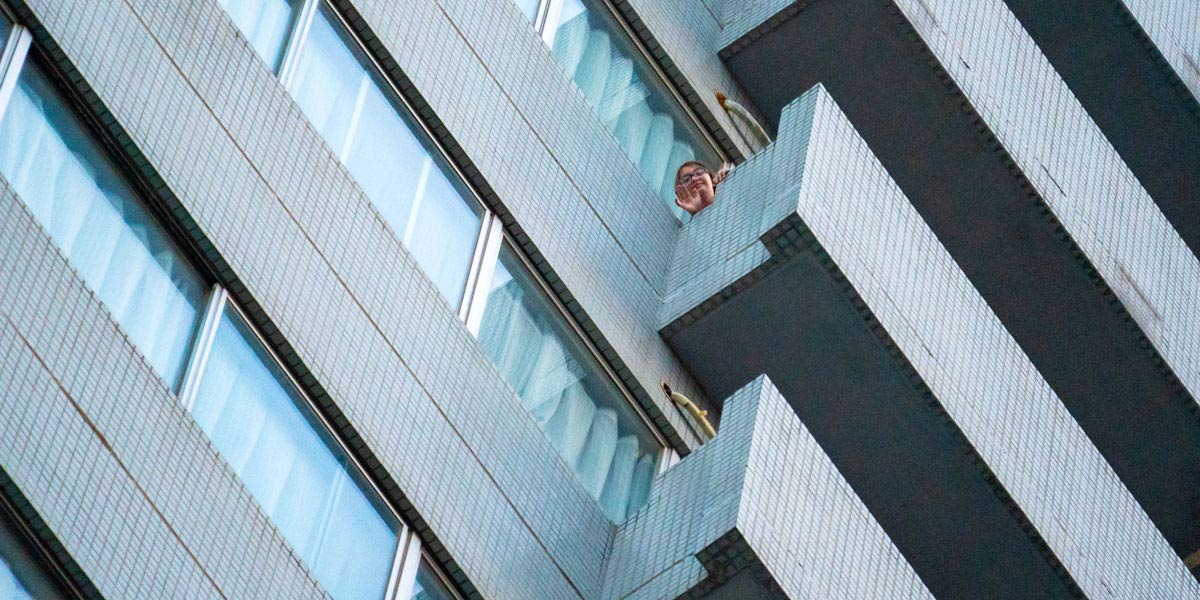
Accomodation
Temporary Housing
WAB will arrange and prepare basic housing for new overseas hire teachers in serviced apartments – either 1, 2 or 3-bedroom units in Lido area with the following basics:
- Furniture – table, chairs, beds and wardrobes, sofas, etc.
- Appliances – telephone, cooking stove, oven, microwave, washing machine, TV, refrigerator, etc.
- Utensils – cooking utensils and dinner ware for at least the number of people occupying.
This pre-arranged accommodation will be fixed for a period of one month (until the end of August) and the August housing allowance will be allocated to this accommodation. There is an option to extend this accommodation for additional months at the employee’s own expense.
To extend the lease term is upon a formal notice to the lessor by 20 August. After the fixed term, you may choose to move out or stay in. If you choose to stay in temporary housing in August, you will not get August housing allowance As WAB pays the temporary housing. If you move to a new apartment in August, you need to pay your August rent of the new apartment at own expense.
Outside of serviced apartments arranged by WAB, most privately owned rented properties are furnished with basic furniture (wardrobes, tables, chairs and beds) as well as electrical appliances (like refrigerators and washing machines). However, you will need to bring or obtain your own supply of kitchen utensils, dinnerware, bed linens, towels, etc.
While the school does its best to find suitable accommodation that is both comfortable and within a reasonable budget, it is unlikely to satisfy everyone’s expectations and lifestyle – housing is rather personal. It may take some getting used to and expectation adjustment. More information will be provided in the months to come before your arrival and during the orientation. For more information on Beijing housing, visit: http://www.bel-property.com.cn/
Permanent Housing and House Hunting
House hunting in Beijing can be exciting, but can also be an exhausting experience at the same time. The most important to remember is, that there is an apartment somewhere for each and everyone. None of our teachers have ever found themselves homeless ever, and one only needs to find one apartment matching thier needs. Here are some tips from previous years’ newbies to help you through the process:
- Go in with an open mind.
- Expect to look at many, many different places over a period of time.
- Try to ‘imagine’ how you could make the place your ‘home’ – it’s amazing what a fresh coat of paint and some interior decorating can do to change things.
- Consider getting to know the different locations – take a bike ride, jump on a bus or walk around the different neighborhoods and get a ‘feel’ for the place.
- Consider access to public transport.
- Have your ‘wish’ list of what you would like (however be FLEXIBLE).
- Reach out to different housing agents.
- Take the opportunity to go on the WAB apartment viewing trip – many people open their homes and this is a great way to see the variety of housing options.
- Negotiate with an agent about what can be included/not included (this includes taking out/ buying in house items like furniture) in the contract.
- Ask for advice from other colleagues or your buddy.
- Be aware how long you wish to stay may have an effect on the rental price
- Expect apartments to be unkept upon first visit (paint peeling, missing tiles, broken cabinets, mold etc.) and DO not be afraid to be vocal with what will need to be fixed upon signing the contract.
DONT…
- Expect your wish list to always be fulfilled
- Limit your viewing to the same areas
- Put yourself under pressure to find a place straight away
- Expect all homes/apartments to be clean when you view them
There were changes in our housing policies in year 2021-22 (as of 1.1.2022) due to Chinese IIT tax rules and regulations. In that calendar year, the private lease contracts are no longer accepted and all leases must be done by using the school standard lease contract according to the school Housing Benefit guidelines. It is therefore advisable to use the school standard lease contract immediately upon your arrival, especially if you commit to a longer than one year lease.

Peng Di
Housing Specialist
cpeng@wab-edu.cn
Tel: +86 10 2618 5588 ext. 1206
Mobile: +86 139 1001 8418
